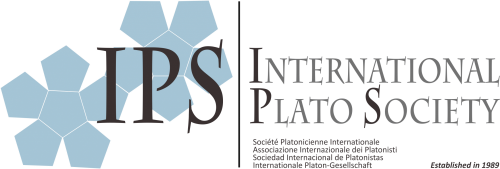Report on “Archai 2008” and Platonic studies in Brazil
A week-long conference entitled “V Seminário Internacional Archai 2008” on the general theme of “The Ancient City” (A Cidade Antiga) was held at the University of Brasília from the 2nd to the 6th June, 2008, and I was kindly invited to give the opening lecture. The conference was supported by the Sociedade Brasileira de Platonistas (institutional member of the IPS) and the Núcleo de Estudos Clássicos, and was organized by Gabriele Cornelli (Professor at the Universidade de Brasilia; President of the SBP and member of the IPS) and his team. I congratulate them on the success of this huge and ambitious conference.
In addition to the Brazilian classicists and graduate students, several guest speakers from abroad gave talks: Giovanni Casertano, Franco Trabattoni (both from Italy), Francisco Lisi (from Spain), and Marcelo Boeri (from Chile). I am happy to report that I also met Prof. José Gabriel Trindade Santos, a long-standing IPS member who used to live in Lisbon but now teaches in Paraíba.
Between my opening talk and the closing talk by Giovanni Casertano, about 35 papers on various fields (Plato, Aristotle, history, literature, and archaeology) were given at 13 Round-Tables. In addition, over 70 papers were read at 25 parallel sessions. While most talks were in Portuguese, some were given in other languages (e.g. my own in English, Trabattoni’s in Italian), accompanied by Portuguese translations projected onto a screen.
The conference encouraged interdisciplinary discussion of classical civilization, and, remarkably, about 30 papers dealt with Plato (of which one third were on the Republic). This seems a clear indication that Platonic studies in Brazil are flourishing. I conversed with many graduate students and young researchers of Plato who study or teach in different parts of this large country.
The organization of the meeting was efficient, and it was intended to be “democratic” in the sense that the Organizing Committee accepted a number of papers from post-graduate students as well. With several foreign speakers present the conference naturally took on an international cast , though it was at base domestic. I appreciated this combination of nationality and internationality, as well as the open and democratic atmosphere. Information on the activities of Archai and of the conference can be seen on its website (www.archai.unb.br), and videos of the conference will also be accessible on it soon.

During the conference, the publication of a new book, Tradição Clássica e o Brasil (eds. André Leonardo Chevitarese, Gabriele Cornelli, Maria Aparecide de Oliveira Silva: Fortium Editora, 2008), was also celebrated. The book includes 15 reports on various aspects of the history and situation of classical studies in Brazil, and it is expected to be of interest to many people outside the country in what is happening there.
This was my first visit to South America (though I am sorry to miss another invitation to Rio de Janeiro because of my tight schedule). I hope firmly that South American scholars, in Argentina, Brazil, Chile, Venezuela, and Peru (where we have several IPS members) will manage to forge closer relationships, in order to promote their academic exchanges even further. I am sure that they have much in common in language, tradition, and ways of studying Plato, and I hope the IPS will be able to aid them in their collaboration.
Noburu Notomi, July 2008
